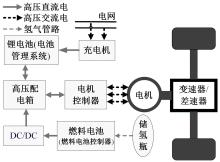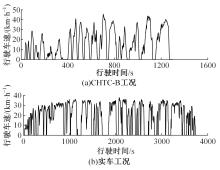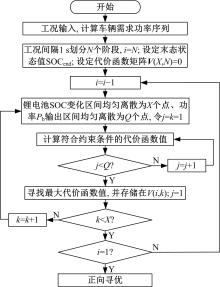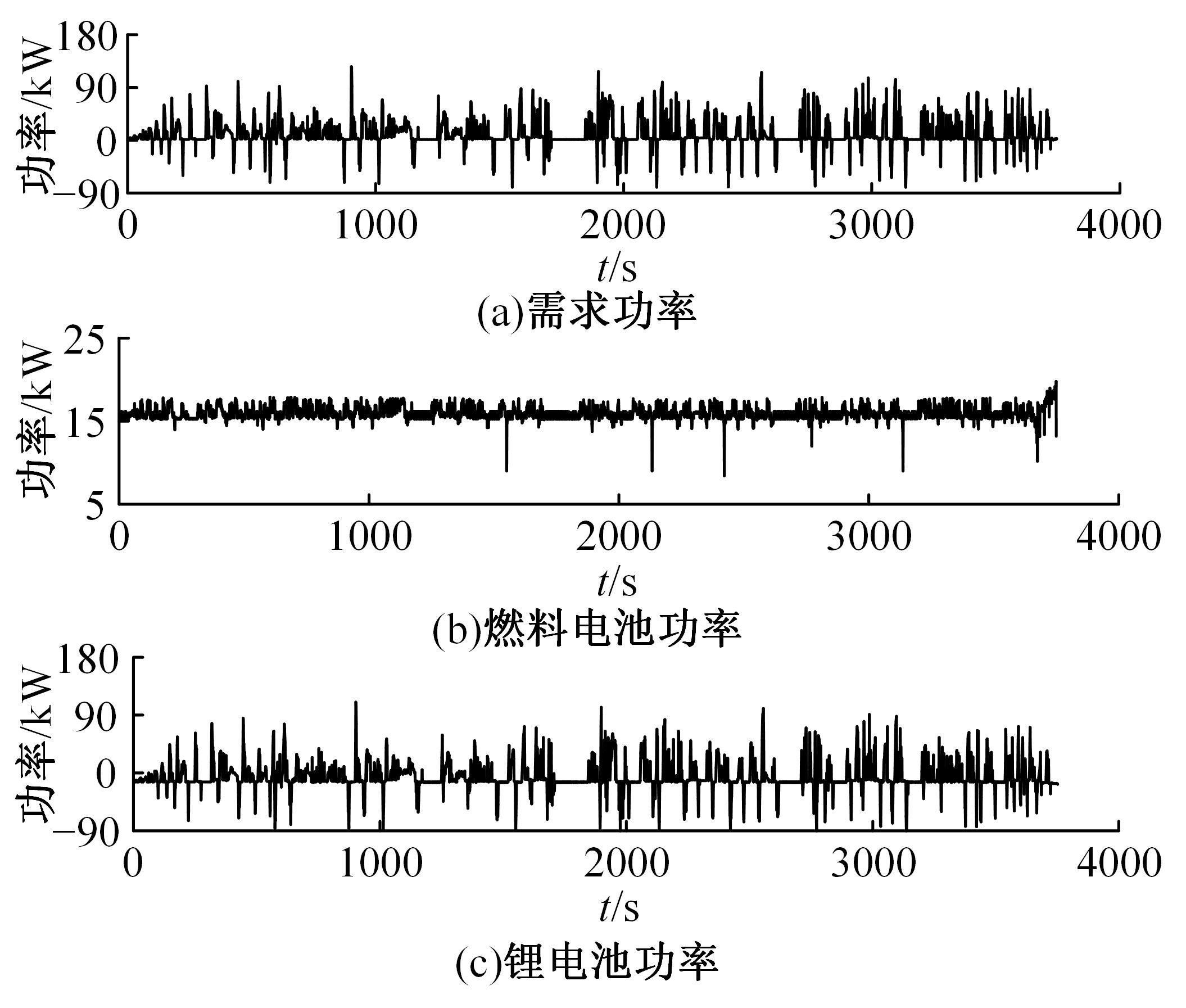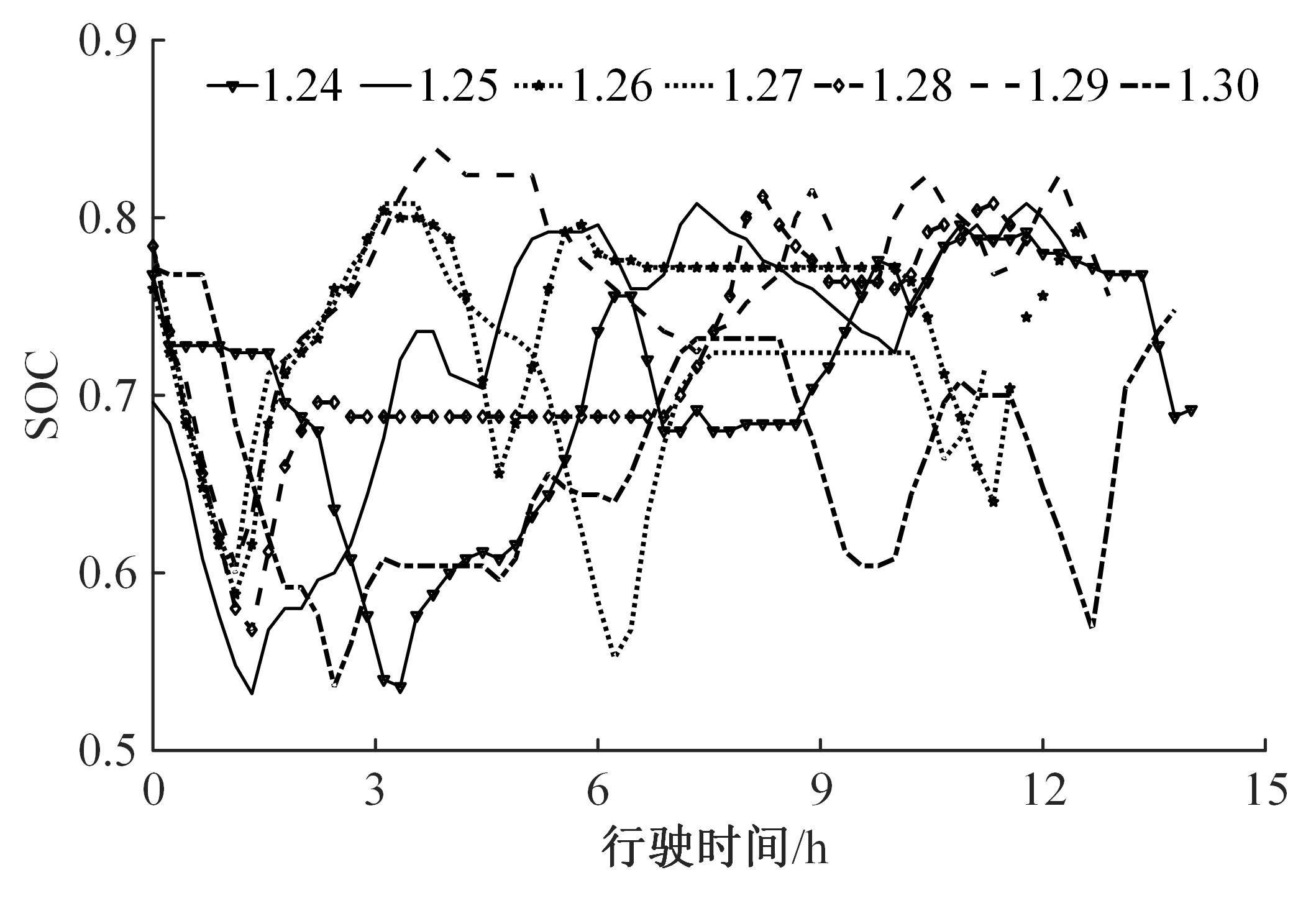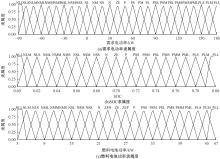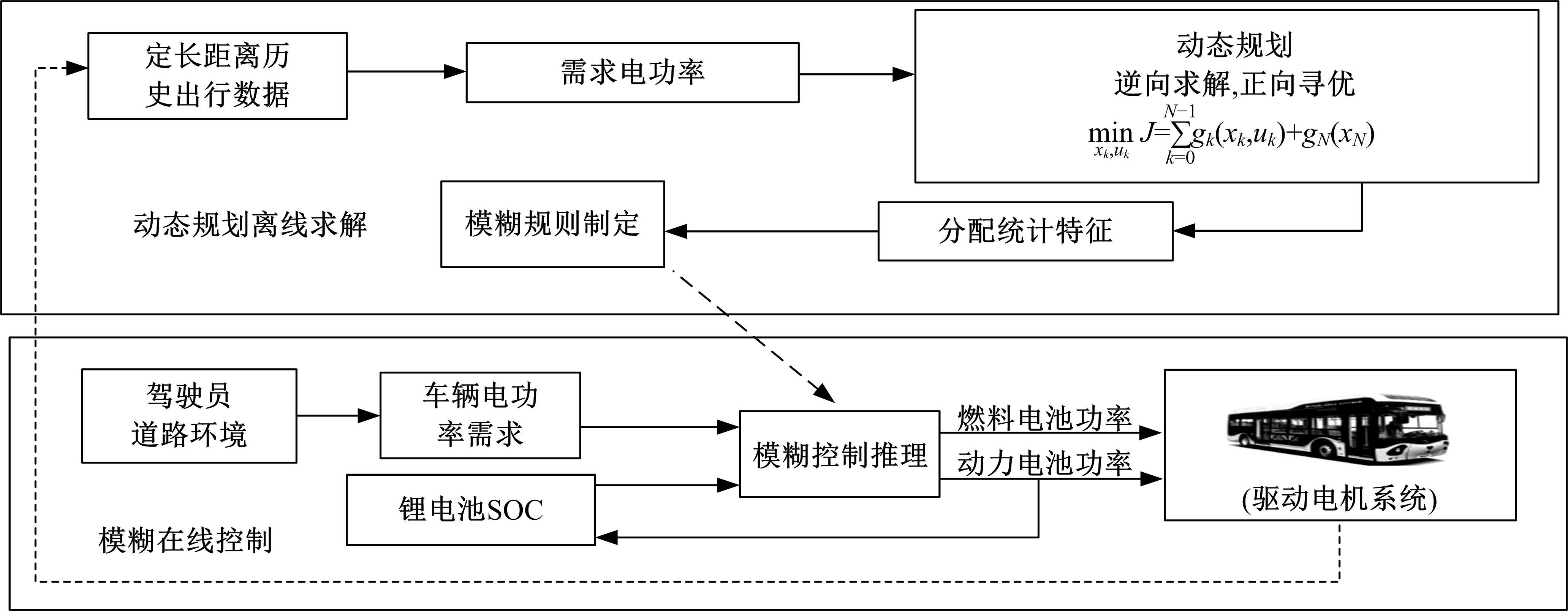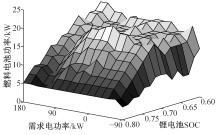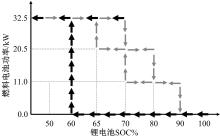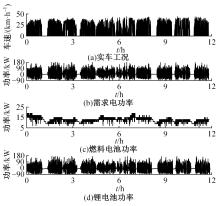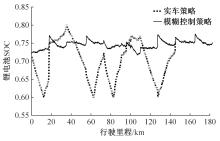Journal of Jilin University(Engineering and Technology Edition) ›› 2022, Vol. 52 ›› Issue (9): 2077-2084.doi: 10.13229/j.cnki.jdxbgxb20211371
Fuzzy energy management strategy of fuel cell buses
Xiao-hua WU1,2( ),Zhong-wei YU1,2,Zhang-ling ZHU3,Xin-mei GAO1,2
),Zhong-wei YU1,2,Zhang-ling ZHU3,Xin-mei GAO1,2
- 1.Vehicle Measurement Control and Safety Key Laboratory of Sichuan Province,Xihua University,Chengdu 610039,China
2.Provincial Engineering Research Center for New Energy Vehicle Intelligent Control and Simulation Test Technology of Sichuan,Xihua University,Chengdu 610039,China
3.Anhui Pusibiaozhun Technology Co. ,Ltd. ,Wuhu 241000,China
CLC Number:
- U461.8
| 1 | 张风奇,胡晓松,许康辉,等. 混合动力汽车模型预测能量管理研究现状与展望[J]. 机械工程学报, 2019, 55(10): 86-108. |
| Zhang Feng-qi, Hu Xiao-song, Xu Kang-hui, et al. Research status and prospects of hybrid electric vehicle model predictive energy management[J]. Chinese Journal of Mechanical Engineering, 2019, 55(10): 86-108. | |
| 2 | 王哲,谢怡,孙维,等. 燃料电池客车动力系统建模与能量管理策略研究[J]. 同济大学学报: 自然科学版, 2019, 47(1): 97-103, 123. |
| Wang Zhe, Xie Yi, Sun Wei, et al. Research on modeling of fuel cell bus power system and energy management strategy[J]. Journal of Tongji University (Natural Science Edition), 2019, 47(1): 97-103, 123. | |
| 3 | 赵治国,沈沛鸿,郏怡颖,等. 燃料电池轿车模型预测实时优化控制[J]. 同济大学学报: 自然科学版, 2018, 46(5): 648-657. |
| Zhao Zhi-guo, Shen Pei-hong, Jia Yi-ying, et al. Model predictive real-time optimization control of fuel cell car[J]. Journal of Tongji University (Natural Science Edition), 2018, 46(5): 648-657. | |
| 4 | 应天杏. 基于功率需求预测的燃料电池汽车能量管理自适应控制策略研究[D]. 上海:上海交通大学机械与动力工程学院, 2018. |
| Ying Tian-xing. Research on adaptive control strategy of fuel cell vehicle energy management based on power demand prediction[D]. Shanghai:School of Mechanical and Power Engineering,Shanghai Jiaotong University, 2018. | |
| 5 | Liu Yong-gang, Li Jie, Chen Zheng, et al. Research on a multi-objective hierarchical prediction energy management strategy for range extended fuel cell vehicles[J]. Journal of Power Sources, 2019, 429: 55-66. |
| 6 | 林歆悠,李雪凡,林海波. 考虑燃料电池衰退的FCHEV反馈优化控制策略[J]. 中国公路学报, 2019, 32(5): 153-161. |
| Lin Xin-you, Li Xue-fan, Lin Hai-bo. FCHEV feedback optimization control strategy considering fuel cell degradation[J]. China Journal of Highway and Transport, 2019, 32(5): 153-161. | |
| 7 | Zhou Wei, Yang Lin, Cai Yi-shan, et al. Dynamic programming for new energy vehicles based on their work modes part II: fuel cell electric vehicles[J]. Journal of Power Sources, 2018, 407: 92-104. |
| 8 | Xu Liang-fei, Ouyang Ming-gao, Li Jian-qiu, et al. Application of Pontryagin's minimal principle to the energy management strategy of plugin fuel cell electric vehicles [J]. Journal of Hydrogen Energy, 2013, 38(24): 10104-10115. |
| 9 | Wu Xiao-hua, Hu Xiao-song, Yin Xiao-feng, et al. Convex programming energy management and components sizing of a plug-in fuel cell urban logistics vehicle[J]. Journal of Power Sources, 2019, 423: 358-366. |
| 10 | 王哲,谢怡,臧鹏飞,等. 基于极小值原理的燃料电池客车能量管理策略[J]. 吉林大学学报:工学版, 2020, 50(1): 36-43. |
| Wang Zhe, Xie Yi, Zang Peng-fei, et al. Energy management strategy for fuel cell buses based on the principle of minimum value[J]. Journal of Jilin University (Engineering and Technology Edition), 2020, 50(1): 36-43. | |
| 11 | Wang Yong-qiang, Advani Suresh G, Prasad Ajay K. A comparison of rule-based and model predictive controller-based power management strategies for fuel cell/battery hybrid vehicles considering degradation[J]. International Journal of Hydrogen Energy, 2020, 45(58): 33948-33956. |
| 12 | 武小花,邹佩佩,傅家豪,等. 燃料电池电动汽车动力系统能量管理策略研究进展[J]. 西华大学学报: 自然科学版, 2020, 39(4): 89-96. |
| Wu Xiao-hua, Zou Pei-pei, Fu Jia-hao, et al. Research progress on energy management strategies of fuel cell electric vehicle power system[J]. Journal of Xihua University (Natural Science Edition), 2020, 39(4): 89-96. | |
| 13 | 吕沁阳,滕腾,张宝迪,等. 增程式燃料电池车经济性与耐久性优化控制策略[J]. 哈尔滨工业大学学报, 2021, 53(7): 126-133. |
| Lv Qin-yang, Teng Teng, Zhang Bao-di, et al. Optimal control strategy for economy and durability of extended-range fuel cell vehicles[J]. Journal of Harbin Institute of Technology, 2021, 53(7): 126-133. |
| [1] | Pei ZHANG,Zhi-wei WANG,Chang-qing DU,Fu-wu YAN,Chi-hua LU. Oxygen excess ratio control method of proton exchange membrane fuel cell air system for vehicle [J]. Journal of Jilin University(Engineering and Technology Edition), 2022, 52(9): 1996-2003. |
| [2] | Xun-cheng CHI,Zhong-jun HOU,Wei WEI,Zeng-gang XIA,Lin-lin ZHUANG,Rong GUO. Review of model⁃based anode gas concentration estimation techniques of proton exchange membrane fuel cell system [J]. Journal of Jilin University(Engineering and Technology Edition), 2022, 52(9): 1957-1970. |
| [3] | Yao-wang PEI,Feng-xiang CHEN,Zhe HU,Shuang ZHAI,Feng-lai PEI,Wei-dong ZHANG,Jie-ran JIAO. Temperature control of proton exchange membrane fuel cell thermal management system based on adaptive LQR control [J]. Journal of Jilin University(Engineering and Technology Edition), 2022, 52(9): 2014-2024. |
| [4] | Feng-xiang CHEN,Qi WU,Yuan-song LI,Tian-de MO,Yu LI,Li-ping HUANG,Jian-hong SU,Wei-dong ZHANG. Matching,simulation and optimization for 2.5 ton fuel cell/battery hybrid forklift [J]. Journal of Jilin University(Engineering and Technology Edition), 2022, 52(9): 2044-2054. |
| [5] | Qing GAO,Hao-dong WANG,Yu-bin LIU,Shi JIN,Yu CHEN. Experimental analysis on spray mode of power battery emergency cooling [J]. Journal of Jilin University(Engineering and Technology Edition), 2022, 52(8): 1733-1740. |
| [6] | Kui-yang WANG,Ren HE. Recognition method of braking intention based on support vector machine [J]. Journal of Jilin University(Engineering and Technology Edition), 2022, 52(8): 1770-1776. |
| [7] | Jun-cheng WANG,Lin-feng LYU,Jian-min LI,Jie-yu REN. Optimal sliding mode ABS control for electro⁃hydraulic composite braking of distributed driven electric vehicle [J]. Journal of Jilin University(Engineering and Technology Edition), 2022, 52(8): 1751-1758. |
| [8] | Han-wu LIU,Yu-long LEI,Xiao-feng YIN,Yao FU,Xing-zhong LI. Multi⁃point control strategy optimization for auxiliary power unit of range⁃extended electric vehicle [J]. Journal of Jilin University(Engineering and Technology Edition), 2022, 52(8): 1741-1750. |
| [9] | Hong-bo YANG,Wen-ku SHI,Zhi-yong CHEN,Nian-cheng GUO,Yan-yan ZHAO. Optimization of tooth surface modification based on a two-stage reduction gear system [J]. Journal of Jilin University(Engineering and Technology Edition), 2022, 52(7): 1541-1551. |
| [10] | Guang-ming NIE,Bo XIE,Yan-tao TIAN. Design of cooperative adaptive cruise control algorithm based on Frenet framework [J]. Journal of Jilin University(Engineering and Technology Edition), 2022, 52(7): 1687-1695. |
| [11] | Shuai HAO,Chuan-tai CHENG,Jun-nian WANG,Jun-yuan ZHANG,You YU. Ergonomic optimization and test evaluation of sports SUV cockpit layout design [J]. Journal of Jilin University(Engineering and Technology Edition), 2022, 52(7): 1477-1488. |
| [12] | Jia-xu ZHANG,Chong GUO,Chen WANG,Jian ZHAO,Xin-zhi WANG. Performance evaluation of automatic parking system based on hardware in the loop simulation platform [J]. Journal of Jilin University(Engineering and Technology Edition), 2022, 52(7): 1552-1560. |
| [13] | Chen HUA,Run-xin NIU,Biao YU. Methods and applications of ground vehicle mobility evaluation [J]. Journal of Jilin University(Engineering and Technology Edition), 2022, 52(6): 1229-1244. |
| [14] | Xiong LI,Feng-chong LAN,Ji-qing CHEN,Fang TONG. Comparison of injuries in front impact between Hybird III dummy model and CHUBM human biomechanical model [J]. Journal of Jilin University(Engineering and Technology Edition), 2022, 52(6): 1264-1272. |
| [15] | Ying-chao ZHANG,Yun-hang LI,Zi-yu GUO,Guo-hua WANG,Zhe ZHANG,Chang SU. Optimization of the aerodynamic drag reduction of a cab behind engine vehicle [J]. Journal of Jilin University(Engineering and Technology Edition), 2022, 52(4): 745-753. |
|
||
